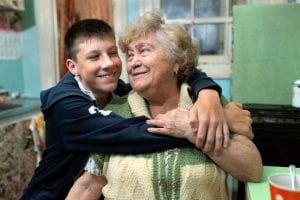 Over the past several decades, marijuana legalization has accelerated across the United States. Cannabis is now legal for recreational use in 24 states and Washington, D.C., as well as for medical use in 38 states and Washington, D.C. Now that it’s more widely available, researchers are asking how legalization is affecting cannabis use. [Read more…]
Over the past several decades, marijuana legalization has accelerated across the United States. Cannabis is now legal for recreational use in 24 states and Washington, D.C., as well as for medical use in 38 states and Washington, D.C. Now that it’s more widely available, researchers are asking how legalization is affecting cannabis use. [Read more…]
How Marijuana Legalization Is Affecting Use
How to Cultivate a Sense of Purpose

The evidence clearly shows that having a sense of purpose—no matter what that is—is good for us. Research shows that having a sense of purpose leads to better health outcomes for older adults, improves our daily mood and physical well-being, and is even associated with increased financial earnings.
Now researchers are delving more into how having a sense of purpose plays out in the lives of individual people. [Read more…]
Do Trigger Warnings Work?

The term trigger warning was coined in the late 1990s on feminist Internet message boards, where it cautioned readers about graphic depictions of crimes, typically rape. The idea was to help emotionally prepare readers for difficult content and allow them to opt out and avoid the content altogether. [Read more…]
Why Writing by Hand Is Better for Your Brain
 Thousands of people now speak to their smart devices to make their grocery lists. Students are more likely to type out notes in class than write them down. And we often type or dictate calendar reminders into our smartphones instead of writing them on a wall calendar. In short, people across the globe and in a wide variety of settings primarily use digital devices to record the things they want to remember. [Read more…]
Thousands of people now speak to their smart devices to make their grocery lists. Students are more likely to type out notes in class than write them down. And we often type or dictate calendar reminders into our smartphones instead of writing them on a wall calendar. In short, people across the globe and in a wide variety of settings primarily use digital devices to record the things they want to remember. [Read more…]
The Problem With How-to-Be-Happy Strategies

Advice on how to cultivate happiness is hard to avoid. Magazines, online news outlets, and television news tout the best ways to improve your mood and boost contentment. Often making the list: exercise, smiling (even when you don’t feel happy), and meditation. [Read more…]
Loneliness Harms Your Health

A broad new analysis published in the journal Nature Human Behavior demonstrates that social isolation and loneliness can lead to premature death. [Read more…]
The Mental-Health Benefits of Singing in a Choir

Singing is nearly ubiquitous in American society. From church choirs to America’s Got Talent, people love hearing voices singing in unison. Nearly 54 million Americans – including one in six adults – participate in choral groups, according to research funded by the National Endowment for the Arts. [Read more…]
New Evidence on Adolescent Mental Health and Social Media
 A sweeping new advisory from the U.S. Surgeon General outlines the best available evidence on how social media is affecting the mental health of youth in the United States. [Read more…]
A sweeping new advisory from the U.S. Surgeon General outlines the best available evidence on how social media is affecting the mental health of youth in the United States. [Read more…]
Acquaintances Are Good for You

Throughout a normal week, you may chat with a delivery driver who stops at your home, strike up a conversation with the person you always see at the gym, or trade recipes with an acquaintance from the dog park. [Read more…]
New Research: Moderate Drinking Provides No Health Benefits

Alcohol consumption is an often-celebrated part of our culture. Millions of Americans enjoy beers at the ball game, wine with dinner, or a cocktail with friends after work on Friday. [Read more…]
COVID Learning Loss Is Real

The COVID-19 pandemic has had devastating effects on our well-being that linger years after the virus first spread among humans. We already know that mental health declined significantly during the pandemic, especially among young people. The pandemic also led to the increased prevalence of sleep problems and eating disorders. [Read more…]
Connecting With Older Adults Is Good For You and Them
 In modern society, most of us live in silos surrounded by people similar to us; this applies across many factors including race and ethnicity, socioeconomic status, and age. In fact, young people and even middle-aged adults today have less contact with older adults than ever before in human history. [Read more…]
In modern society, most of us live in silos surrounded by people similar to us; this applies across many factors including race and ethnicity, socioeconomic status, and age. In fact, young people and even middle-aged adults today have less contact with older adults than ever before in human history. [Read more…]


